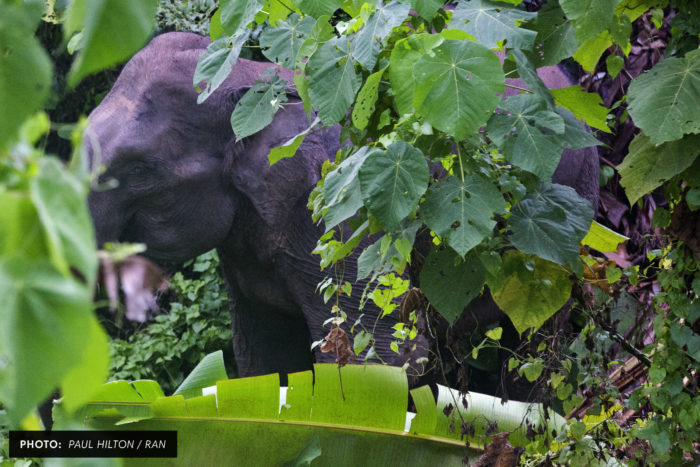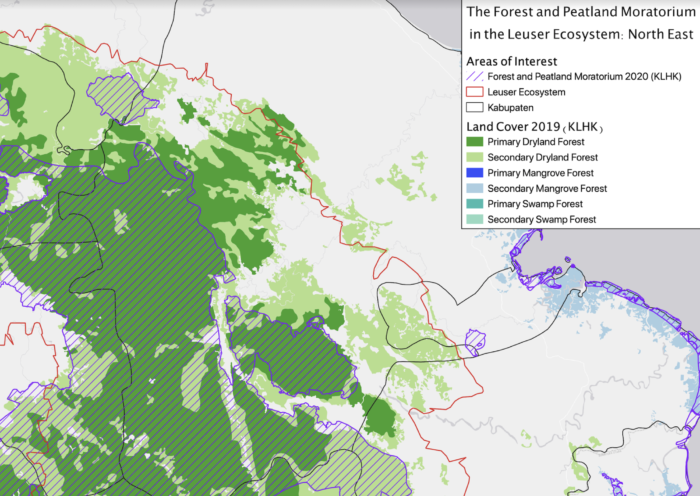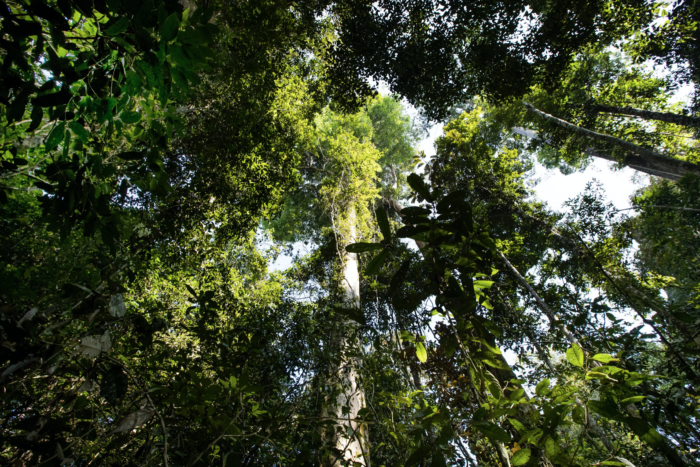PT. Tualang Raya latest to join peers in commitment to forest protection
PT. Tualang Raya – a rogue palm oil producer previously implicated in the destruction of a critical corridor for Sumatran elephants in the Leuser Ecosystem has published a commitment to stop land clearing and adopt a No Deforestation, No Peatland and No Exploitation policy which details actions it will take to comply with the palm oil sourcing policies of major brands and traders. This is great news for the Leuser Ecosystem and further evidence that we may be witnessing a conservation breakthrough for this priceless intact rainforest landscape in Indonesia.
The latest commitment was announced by PT. Tualang Raya on 27th of May and builds on those announced by other palm oil companies in the region such as Mopoli Raya, PT. Agra Bumi Niaga, and PT. Indo Sawit Perkasa. This milestone shows the increasing awareness amongst palm oil companies in Aceh that such steps are necessary to maintain their ability to supply palm oil to the global market. It also leaves rogue companies that continue to destroy rainforests, such as PT. Laot Bangko, PT. Indo Alam, PT. Nia Yulided and PT. Putra Kurnia, further at risk of being permanently excluded from supplying the mills and refinery operators, such as Musim Mas that are implementing No Deforestation, No Peatland and No Exploitation policies across Aceh.

PT. Tualang Raya states that it has halted all land clearing and will protect almost 2500 acres of remaining forests, restore nearly 350 acres of forests in the elephant corridor, and protect and restore 250 acres of buffer zones along rivers that flow through its concession. It also commits to protect wildlife that live in and depend on the forests within the area of land under its management and support efforts aiming to reduce conflict between roaming elephants and local communities.
The company has also appealed to the government to change the boundaries of its concession so lands used by the local communities of Sijudo and Blang Suenong villages are no longer overlapping with its palm oil development area. If agreed by the government this will reduce its area from over 12,400 acres to roughly 9100 acres. Negotiations are also underway to reach agreements on compensations that will be given to affected communities and partnership agreements on plasma programs that will enable communities who chose to produce oil palm to sell into the network of local mills in the region.
PT. Tualang Raya is also committing to undertake further assessments to identify High Conservation Value (HCV) areas and High Carbon Stock (HCS) forests within its concession using the leading methodology for implementing No Deforestation commitments- the High Carbon Stock Approach. This assessment will be undertaken with support of the Sustainable Trade Initiative–– a coalition of actors working with local governments and stakeholders––to undertake landscape level HCV and HCS assessments across two districts, including Aceh Timur where PT. Tualang Raya’s palm oil concession is located.
This approach holds promise as vast areas of lowland rainforests remain available for conversion to oil palm and pulp and paper and are not protected by the Indonesian government’s moratorium on primary forests. It is hoped that this approach can develop a shared understanding of the importance of keeping forests threatened with conversion standing across Aceh Timur and neighbouring districts that are home to the lowland rainforests of the Leuser Ecosystem.

The map above shows that vast areas of forests in Aceh Timur are not covered by the Indonesian Government’s moratorium on primary forests (areas of green inside the red boundary but outside the purple hatched area are all threatened lowland rainforests in the north-east lowlands of the Leuser Ecosystem). It is hoped that landscape level HCV-HCS assessments can enable the identification of important forest areas and customary lands that need to be excised from lands available for logging or plantation expansion.
Unilever and PepsiCo are supporting this effort to identify important forests that are threatened by expansions of palm oil and pulp and paper in Aceh but continue to be exposed to controversial producers and mills operating in the Leuser Ecosystem. Other brands such as Nestlé, Mars, Mondelēz, Procter & Gamble and Colgate Palmolive continue to drive the destruction of the Leuser Ecosystem through their relationships with controversial palm oil suppliers and have failed to publish details of the interventions they will take to stop the destruction of this priority landscape.
It is past time for all brands to place producers and mills that are complicit with the destruction of the Leuser Ecosystem on their No-Buy lists and support producers like PT. Tualang Raya to implement commitments made to protect and restore forests cleared after the December 2015 cut-off date for deforestation in the palm oil supply chain. Alarmingly, it remains the case that not a single brand can demonstrate a credible approach to dealing with non-compliance and none have disclosed criteria that must be met prior to allowing producers suspended for clearing rainforests back into their supply chains. This is one of the reasons why these brands continue to score poorly on the implementation of their No Deforestation, No Peatland and No Exploitation policies and we need to keep pressuring them to change.

Image of High Conservation Value lowland rainforests that we need to Keep Standing in the Leuser Ecosystem. Image: Paul Hilton/RAN.